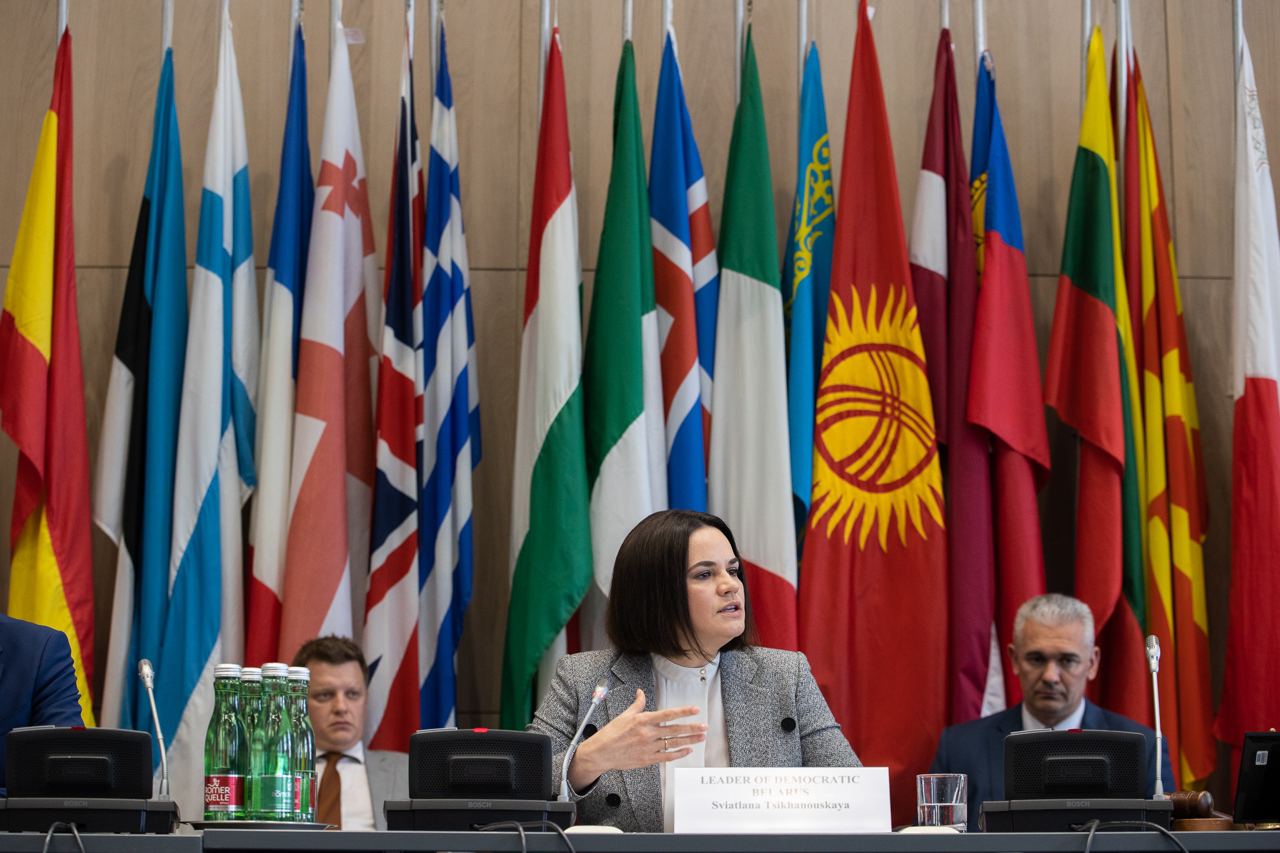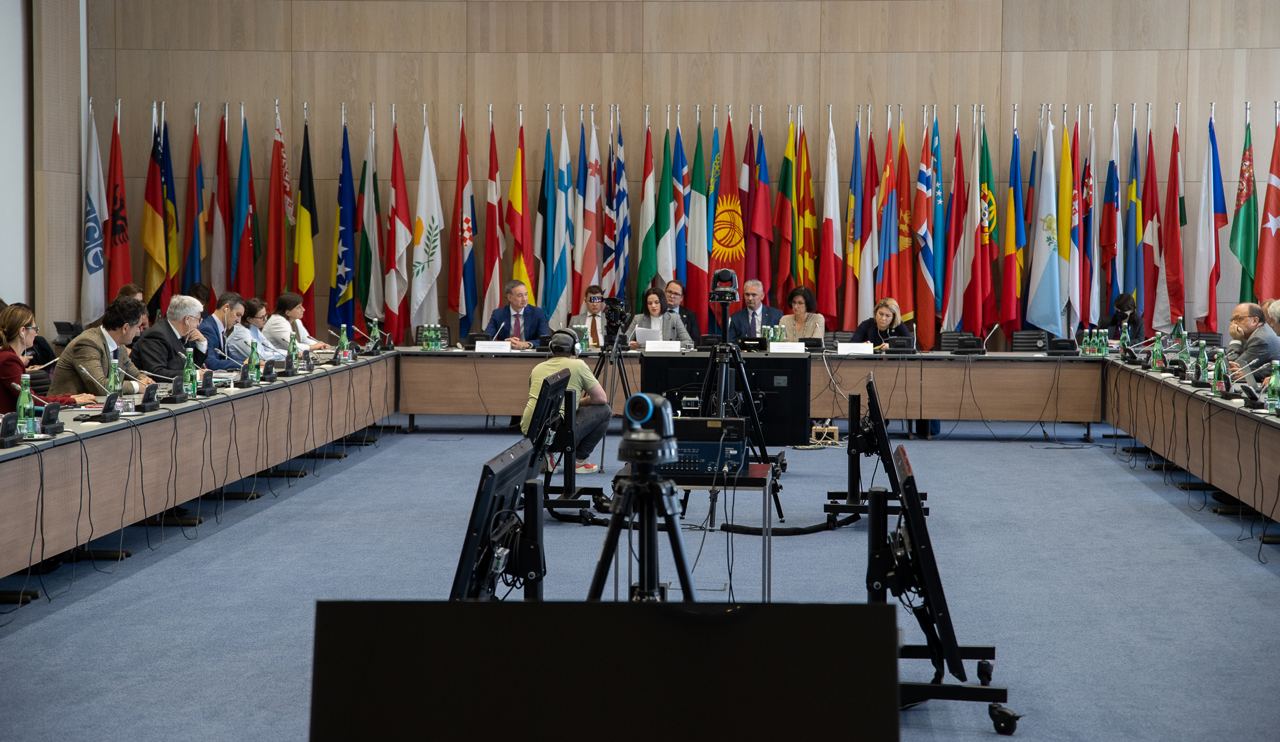Sviatlana Tsikhanouskaya delivered an address in the Hofburg Palace in Vienna, the traditional seat of the OSCE Permanent Council. Ms. Tsikhanouskaya was invited by the delegations of the European Union and the United States as the leader of democratic Belarus. Representatives of more than 40 of 57 OSCE member states attended the meeting. Officials from Russia and Belarus were absent.
After delivering an address, Sviatlana Tsikhanouskaya answered questions from the delegations. Representatives of Ukraine, the US, France, Poland, Lithuania, and other delegations also spoke.
In her speech, Ms. Tsikhanouskaya called on the OSCE to be more decisive and consistent:
“Had we succeeded in 2020, Russia’s war against Ukraine would probably not have happened. We would have an entirely different situation in Europe now. Looking at those events from a 2-years distance, we see that the world’s reaction could have been much stronger too. Frankly speaking, international organizations such as the OSCE could have done more to help resolve the crisis in Belarus. And I still believe there is a lot in OSCE's mandate that could be done”, Ms. Tsikhanouskaya said in her statement.
Sviatlana Tsikhanouskaya urged the OSCE member states to be consistent and not give in to blackmail, accepting the “potash deal” and removing sanctions on potash in exchange for carrying grain through Belarus. She spoke about the fate of political prisoner Mikalai Autukhovich, charged with “terrorism”, and the new law on the death penalty, adopted by the Lukashenka regime, and called for sanctions against all those who voted for its adoption.
Ms. Tsikhanouskaya also drew attention to the state of the Polish community in Belarus: Polish and Lithuanian schools are closed, and journalist Andrzej Poczobut remains in prison.
“The stopping of repression can lead to the collapse of the regime. All law enforcement agencies are now focused on searching for enemies. Some of them even compete to see who could repress more. Lukashenka understands very well that in 2020 people felt freedom. One day without arrests will be enough for thousands to come out again”, Sviatlana Tsikhanouskaya noted.
The national leader of Belarus also called the delegates to hold a conference under the auspices of the OSCE on the settlement of the crisis in Belarus and its role in the war. She suggested that the OSCE ODIHR should pay more attention to political prisoners, cooperate with Belarusian human rights activists, and the Representative on Freedom of the Media Teresa Ribeiro should support Belarusian journalists.
Sviatlana Tsikhanouskaya handed over information to OSCE delegations evidencing Lukashenka’s participation in the war and support for Putin, as well as the resistance Belarusians have deployed to prevent Russian troops.
Senior Advisor to Sviatlana Tsikhanouskaya Franak Viacorka commented on the address at the OSCE:
“The very fact of this address shows that Belarus remains on the agenda, and Sviatlana Tsikhanouskaya is recognized in the international arena as the representative of the Belarusian people”.









